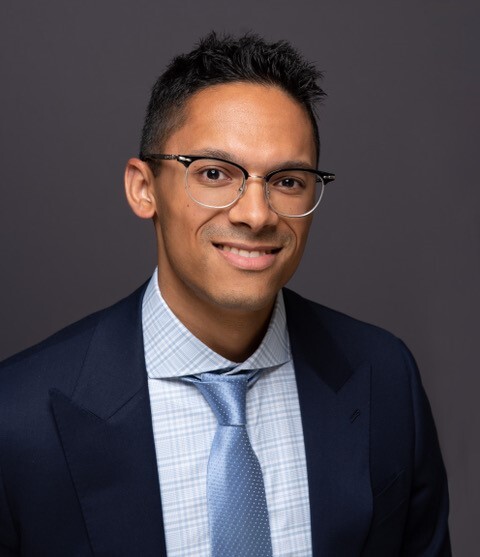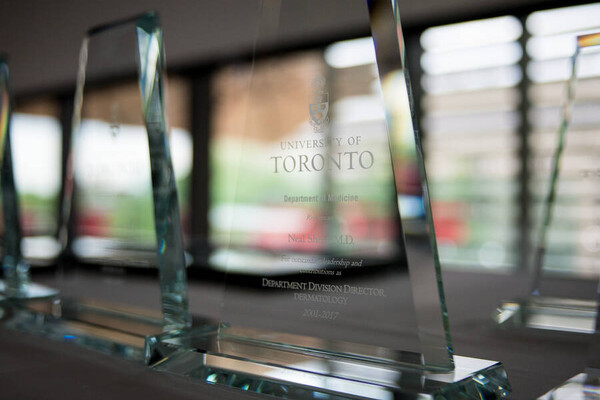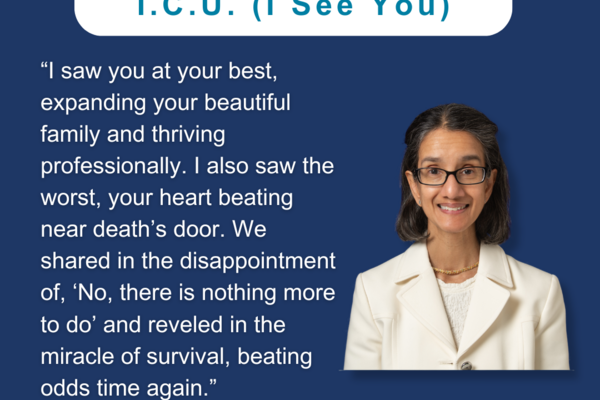Main Second Level Navigation
- Welcome
- Why Toronto?
- History of the Department
- Vision & Strategic Priorities
- Our Leadership
- Our Support Staff
- Location & Contact
- Departmental Committees
- Department of Medicine Prizes & Awards
- Department of Medicine Resident Awards
- Department of Medicine: Self-Study Report (2013 - 2018)
- Department of Medicine: Self-Study Report (2018 - 2023)
- Communication Resources
- News
- Events
Cardiology fellow aims to improve lives by understanding patients' backgrounds

If there’s one thing Dr. Sameer Kushwaha has learned while caring for his patients, it’s the importance of dedicating time and energy to those you love, because tomorrow is never guaranteed.
He grew up in Calgary, Alberta and completed his undergraduate degree at McGill University. Dr. Kushwaha loved the idea of living in Toronto as it seemed like a great place to continue his medical training alongside some of the best physicians in the world, so he felt very fortunate to be accepted into medical school at the University of Toronto (U of T).
He was assigned to the Fitzgerald Academy based at St. Michael’s Hospital, which is where his brother received lifesaving care many years earlier. During medical school, Dr. Kushwaha became the co-director of the U of T International Health Program – one of the largest student-run organizations at the university. The group organized conferences, high school outreach programs, model World Health Organization conferences and a small research grant program, amongst other activities.
“My undergrad prepared me very well for my first-year anatomy lab, which was my high point in medical school, and this is where I managed to impress a classmate who would become my future wife,” he says. “We participated in the Canadian Resident Matching Service (CaRMS) couples match and both stayed at U of T for our residency in internal medicine.”
Dr. Kushwaha describes himself as chronically indecisive about his career path. He enjoyed learning how complex clinical problems interact with other parts of life, from family relationships to access to medication and struggles with substance use. Thus, he decided he wanted to work with patients to figure out ways to live a healthier life, which led him to pursue internal medicine.
“It didn’t take many years of residency to figure out that fixing these complex situations is easier said than done, but I still believe it’s a goal worth striving for,” he adds.
As Dr. Kushwaha advanced in residency, he developed a growing appreciation for the importance of the social history in developing an effective care plan.
“There comes a point in our clinical practice when we’re comfortable with managing the purely medical aspects of almost any patient that comes through the door, but the patient’s clinical trajectory often relies so heavily on how well they can manage at home, their health literacy, who else can provide support, substance use, finances, competing life priorities and other “non-medical” aspects of their life,” he says. “Taking the time to understand more about a patient’s background can often provide insight into how to provide better care.”
Dr. Kushwaha was fascinated by cardiology since he was a child, perhaps as a result of growing up in a South Asian community, which have a disproportionately high prevalence of cardiovascular disease.
“I was fortunate to meet amazing mentors in U of T’s Division of Cardiology during my first few months of residency, such as Drs. Amar Uxa, Melita Mezody, Gillian Nesbitt, Susanna Mak and Mena Gewarges, who continue to be some of my biggest supporters,” he says.
He loved the breadth of cardiology, from peacefully interpreting diagnostic investigations one day to being in the cardiac care unit resuscitating critically ill patients the next. Above all, Dr. Kushwaha loved the heart; he loved helping the patients who had them and the clinicians who worried about them, which inspired him to subspecialize in cardiology.
Though he reduced extracurricular work during residency to focus on clinical training, he was recently involved with the Resident Interest Group in Social Advocacy. This group collaborated to develop “Guidelines for Inclusivity” for medical educators at U of T, providing input on how lectures could be modified to be more inclusive of diverse patients and learners.
“I believe that equitable healthcare and strong public health programs are integral to the work that all physicians do to improve the health of our patients,” Dr. Kushwaha says.
The COVID-19 pandemic was a profoundly unique and challenging experience for Dr. Kushwaha as a resident, but it also allowed him to see the gravity of the role he plays in healthcare. He recalls working in the intensive care unit at St. Michael’s Hospital in March 2020 as he and his colleagues anxiously anticipated the first cases of COVID.
“It felt like all of us, residents and attending physicians, were suddenly on an even playing field – none of us knew what was coming or what to do about it,” he says. “It was terrifying, but despite the fear, the coming months and years also brought out a lot of camaraderie, and as much as we were trying to keep patients safe, we were also keeping each other safe.”
Dr. Kushwaha is currently completing an echocardiography fellowship at Mount Sinai Hospital. Next year, he is very excited to be starting full-time as a cardiologist at Michael Garron Hospital. He hopes to learn more about the local community to be an effective physician and to provide high quality, equitable care for the many diverse populations that call Toronto home.
“After spending most of my waking hours during the past 10 years of medical school and residency in hospitals, I also owe a lot of time to my friends and family who have given me a pass on missing various celebrations,” he says. “One of my biggest goals is to redouble my efforts to be the best husband, son, brother, uncle and friend that I can be to the people who got me here today.”


